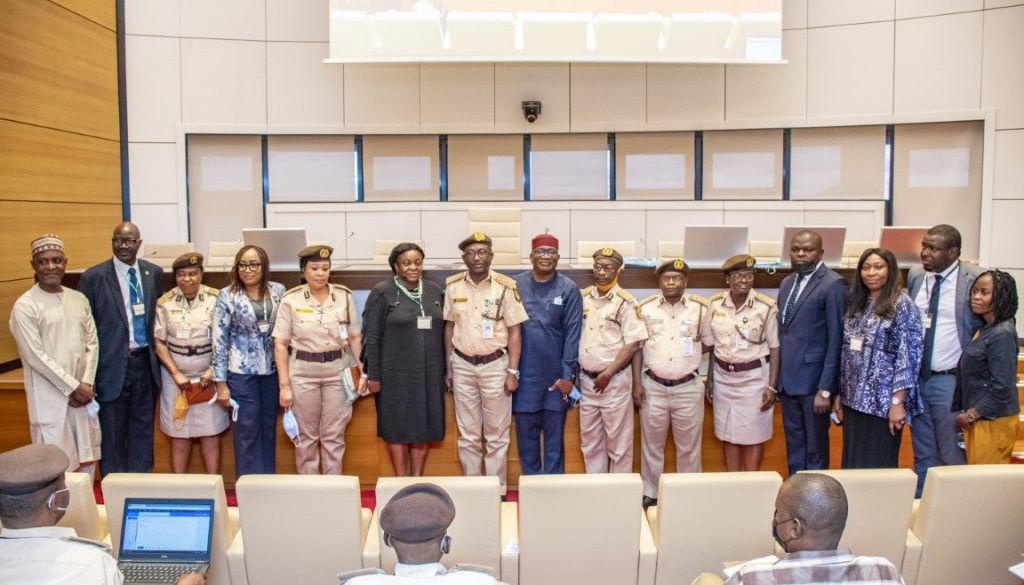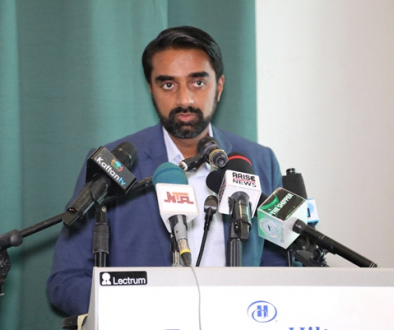CBi Hosts Leadership & Ethics Training for Immigrations Officers

On the 11th – 13th August, 2021, the Convention on Business Integrity hosted a training program for Officers of the Nigerian Immigration Service, in partnership with Minerva Legal and DCSL Corporate Services.
The training aimed to build the capacity of the next generation of Immigration Officers that have the capacity to understand and implement effective compliance and ethical practices, and demonstrate the level of visionary leadership that enables the Immigration Service to position itself as an institution fit to operate in the 21st century. The following below provides an overview of the key components of the leadership, compliance and ethics, training programme:
- Instituting a Compliance Programme: This module aimed at supporting the NIS to create and maintain an anti-corruption compliance programme that reflects and is designed to address the risks pertinent to the NIS. Through the training, emphasis was be placed on the role of the senior management of the NIS to explicitly endorse and provide visible support to the ethical compliance programme.
- Leadership: This module covered the importance of leadership to successfully promoting and entrenching behaviour change around ethical compliance and anti-corrupt practices through custom and practice. Participants learnt how to lead with influence and key steps to take when demonstrating effective problem solving and decision-making skills. The training explored the power and process through which senior officers and the leadership of the NIS can showcase a transformational leadership mindset, which will be crucial to achieving the mandate of the Standard Operating Procedures (SOPs) of the NIS. This module also explored the importance of principle-centred leadership in the NIS to transforming the corporate culture and behaviour of officers of all cadres within the NIS.
- Reporting, Discipline and Incentives: The module covered the processes for establishing platforms that enable NIS officers, members of the public, contractors, and other key stakeholders to seek information, ask questions, make complaints and report concerns. The module also covered the importance of promoting confidentiality and anonymity (where requested) across the service, and ensure that complainants that report concerns or ask questions in good faith do so without fear of retribution and confidence that action will be taken. The module equally examined steps and scenarios for complaints handling and investigations of credible reports of improper behaviour against officers and how to implement appropriate/proportionate corrective actions, all contained within a consequence management framework.
- Monitoring and Internal Controls: This module covered the process for detecting and preventing incidents of bribery, facilitation payments and other forms of corrupt and/or unethical practices through appropriate monitoring and auditing protocols. The module set out a template for strengthening internal controls to protect the integrity of financial and accounting procedures, including accurate data keeping, management and security.
- Evaluation: The module broadly cover the process for conducting a root-cause analysis on deviances of ethical and compliance practices detected, and evaluate how the deficiencies identified can be corrected. This will aid senior management and/or leadership of the NIS to identify adjustments to policies and/or standard operating procedures (SOPs) as appropriate to meet the needs of the NIS.
- Training and Communications: This module recommended steps for improving awareness and training for all NIS officers to understand the responsibility to comply with the Code of Conduct and all accompanying SOPs, especially when dealing with the public or discharging a sensitive task. The training methodology and communications approach recommended would be designed to achieve behaviour change among senior officers, rank-and-file and, where possible, third-party stakeholders.
- The module introduced participants to the subject of Professional Ethics with the expectation of the creation of awareness about professional ethics as a means for encouraging Change of behavior.
The overview of the agenda include for each day is as follows:
Day 1: Opening ceremony, Principles- Centered Leadership, 360o Leadership, Transformational Leadership Mindset, Leading with Influence, Creative Problem Solving & Decision-Making Skills
Day2: Responsibilities of Officers, Role play, video, Gaps in the SOP of NIS, Compliance framework: Risk Management and Internal Controls, Consequence Management, Case studies, Building a Corporate Ethical Culture
Day3: Recap of what was learnt on Day 1 and Day 2, Introduction to Professional Ethics, Workshop – Ethics in Action
Profile of Participants
The NIS officers were selected from a certain cadre and drawn from various wards/commands across the country (FCT, Benue, Bayelsa, Ogun, Sokoto, Kogi, Nasarawa, Lagos, Niger, Ibadan, Katsina, Jigawa, Ekiti, Kwara, Ondo, Osun, Akwa-Ibom, Zamfara, Kaduna, Abia, Bauchi, Kebbi, Rivers). The officers represented various units of the NIS- Legal, Compliance, NITSA, Migration, Security, PRO, Visa & Registration, Protocol, Anti-Corruption, Works, Intervention & Roll Out, PSSO, Provost, PPT Directorate, SERVICOM, Admin and RRS.
The programme was attended by 147 participants and other facilitators. 106 participants were issued certificates at the end of the training.













